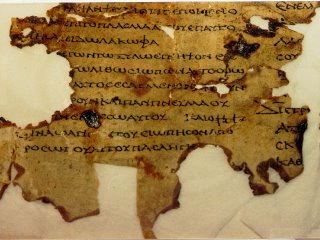Minor “Prophets” or “Prophet” Part One

I recently began a series in our evening services in that often forgotten part of our Bibles known as תרי עשר, “The Book of the Twelve” or more popularly the “Minor Prophets” (“minor” because of their size not importance). Many in my congregation are at the beginning of their “through the Bible in a year plans.” Some of them tell me that the reading wheels start to slow down around Leviticus, then begin to fall off by Chronicles and finally grind to a halt if they ever make it to the “Prophets.” So chiefly for that reason and a few others, I decided to preach a series that would introduce the Minor Prophets to the average person who has little understanding of their meaning or biblical importance. I purposed to do this with one introductory message and then one message on each of “The Twelve”, paying attention to broader themes, purposes, application, and their redemptive place in the larger canon of Scripture. It’s a variation on this last purpose that I want to propose here: Should the Twelve Minor Prophets be viewed as twelve separate books with little overlap or should a more organic relationship be seen in which they stand or fall together as a unified whole? More importantly, does it matter? I will argue for the unified approach and that it does matter.
In part two I will seek to provide a few reasons as to why I think “The Twelve” should be seen as a unified core with an unfolding redemptive purpose. Beginning with Hosea and ending with Malachi, “The Twelve” tell a thematic story that was crucial for their day as well as for ours. This story unfolded for almost four hundred years through the writings of the twelve prophets. It is believed that the unified approach was recognized in Jewish tradition by at least 190 B.C where the prophets were referenced together in Jewish writings as “The Twelve Prophets” (cf. Ecclesiasticus 49:10). However, my main concern is with the text itself so there are two lines of evidence that will be discussed: 1) textual and 2) literary-thematic. I'm not really concerned with those who offer radical views on "The Twelve" as being fragmented and disjointed writings for such persons rarely deal with the text to begin with and are generally unconcerned with unified themes. My concern is that the people of God understand all of Scripture especially those hard to reach areas like the Prophets. I would love to hear your perspective if you have any thoughts on this or have pursued it before me.

1 Comments:
Paul,
I have not thought alot about this before. Keep us updated as to your finds.
CK
Post a Comment
<< Home